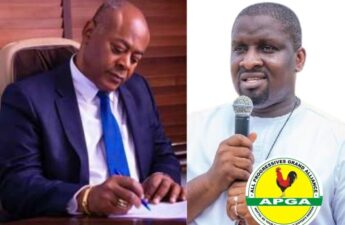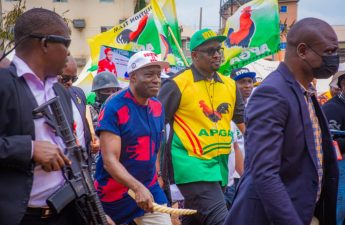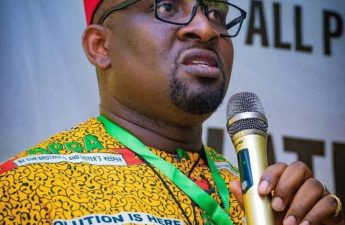Former governor of Lagos, Babatunde Fashola has said that presidency is overrated and he will not participate in the raging controversies over where the ruling All Progressives Congress (APC) should zone its presidential ticket for the 2023 general election.
But he said the ruling party should be allowed to make a decision on where to zone its presidential ticket for the next general election.
Fashola who is now the Minister of Works and Housing spoke while reacting to a question on the raging controversies over which of the zones in the country should get the presidential ticket of the ruling APC in the next general election in an interview with THISDAY newspaper.
The Minister who is one of those rumoured to be interested in succeeding President Muhammadu Buhari had in a previously argued that the presidential ticket of APC should be zoned to the Southern part of the country.
But speaking to THISDAY newspaper, Fashola said he will rather not join in the ongoing controversies as his opinion can only help to raise tension.
Fashola said: “People ask me about rotation, and I tell them that I’m a lawyer. The constitution does not talk about rotation. That’s the law. Yes, it talks about political parties. And it is parties that birth a constitution. The constitution is the agreement. And I also told them that look, if your agreement says that this is what you should do, then, go and follow your agreement.
“But I say that even agreements written may not be as important as the honour and so even if we just agree by word of mouth and it is not written. With all these raging north, raging south, let’s see how things go. You know, because I think the political environment itself is too charged now. One has to just leave it to the political parties.
“This is a decision that the party has to take. I am not the administrator of the party. My opinion, one way or the other on this matter can only help to raise tension. When the party decides, then, we’ll see.”
Confronted with the question of his alleged 2023 ambitions again in the extensive interview, Fashola said rather than the presidency, Nigerians should focus more on governments at the sub-national levels.
He advised that rather than focus on who the next president will be, Nigerians should focus and be more interested in who will emerge as their next governor, local government chairpersons and their promises in terms of programmes and policies.
Fashola said: “You know what? I think Nigeria’s problems will be better dealt with if we all focus our attention on the right places and not the presidency. What is the appeal of the presidency? So, for me, given what I know and given what Nigerians seem to want and I addressed this in another forum; we are looking in the wrong place for the wrong thing.
“We were talking about the Jakande Housing Programme, it wasn’t the president who did it. A president can’t give you water, pack your refuse, give you foundational education, primary school, where you learn ‘A’ for apple. Federal government does not own one primary school, federal government does not own one primary healthcare centre.
“Those of you who manage public communication must begin to bring us back home to where the real issues are. We have the impression that our president is all-powerful, go and read the constitution. We are conflicting his duties with his powers, and his responsibilities.
Fashola added that though the President has powers to confirm, to appoint and all that, he’s not all that powerful.
He noted for instance that the Nigerian president can’t pass his own budget on his own.
“So how much of his agenda can he achieve if he can’t guarantee what his budget will look like? Is it not the budget that defines the outcome?
“So the presidency is overrated. There has been this single one-sided story, and this is one of the things I want to be addressing, as we go forward just to help Nigerians understand that the real deal is at the sub-national level. Be interested in who your governor is, be interested in who your local government chairman is, etc. When they come and tell you, we will do this, ask them how and who will pay.”



